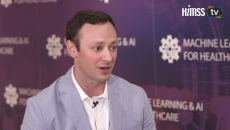machine learning
Machine learning is transforming imaging, decision support, clinical workflow and physician-patient interaction, says Dr. Anthony Chang, chief intelligence and innovation officer at Children's Hospital of Orange County.
Dascena's COViage system uses demographic and vital-sign data pulled from a COVID-19 patients' EHR to calculate their risk of hemodynamic instability or respiratory failure.
Dr. Liz Kwo breaks down the data and technology-enabled healthcare tools being adopted by next-generation payers and providers.
Researchers used causal machine learning approach to increase algorithm’s accuracy.
A recent review of Medicare claims suggests a machine learning algorithm could flag individuals at higher risk of infection or help prevent outbreaks within skilled nursing facilities.
The company's complete blood count analyzer uses artificial intelligence to quickly measure biomarkers from a fingerstick or venous sample.
This latest contribution was led by Mubadala Capital and Bpifrance.
AI is steadily proving itself to the clinical community, but there are some aspects of care in which an algorithm will never be granted full control, said Cardiologs CEO Yann Fleureau.
Deep Dive: From clinical decision support to revenue cycle to cybersecurity, machine learning algorithms are already transforming healthcare, although much depends on how they're implemented.
Joseph Dorocak, manager of population health analytics at Cleveland Clinic, describes some of the staffing and process strategies the health system uses as it puts AI to work to improve patient outcomes and financial return.


